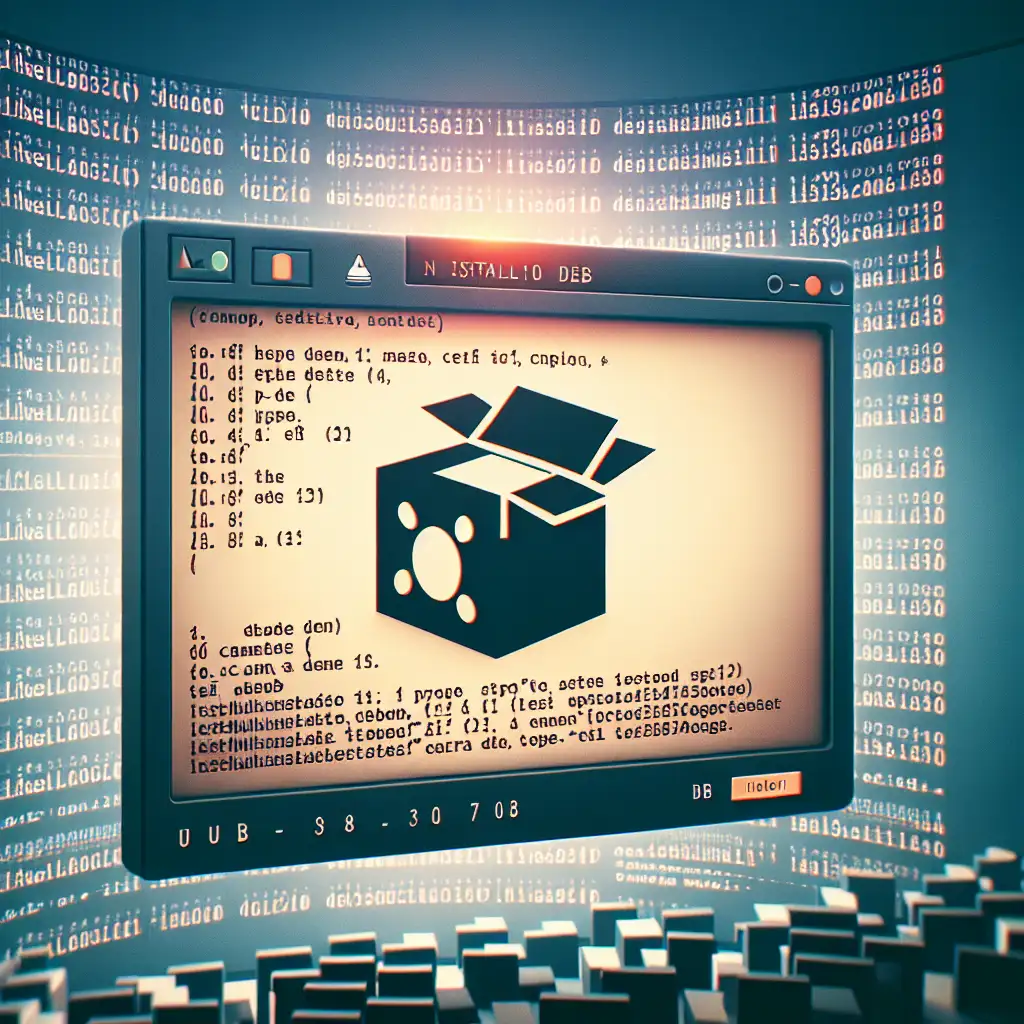Mastering Debian Package Installation on Ubuntu: A Precise Guide to Installing .deb Files
Forget blindly trusting apt install for everything—get under the hood with a practical method to handle .deb files confidently, avoid dependency nightmares, and troubleshoot like a pro.
When you use Ubuntu, most of your software needs are met via official repositories using simple commands like sudo apt install package-name. But what happens when the software you want isn’t in those repos? Perhaps it’s a proprietary app, a newer version not yet packaged, or a specialized tool distributed as a .deb file.
Understanding how to properly install .deb files on Ubuntu empowers you to extend your system’s capabilities beyond standard repositories, allowing access to specialized or proprietary software efficiently and securely.
In this post, you'll learn how to install .deb packages the right way, manage dependencies, and troubleshoot common issues that come with manual package installations.
What is a .deb File?
A .deb file is the Debian Software Package format used by Debian-based Linux distributions like Ubuntu. It contains the compiled software binaries along with metadata and installation instructions.
Since Ubuntu uses the same packaging format, installing .deb files is possible—but there’s more than one way to do it, each having pros and cons.
Common Methods to Install .deb Files on Ubuntu
1. Using dpkg
The low-level Debian package manager is dpkg. It installs .deb files directly. However, it doesn’t automatically resolve dependencies.
sudo dpkg -i package_name.deb
If dependencies are missing, you’ll see errors like:
dpkg: error processing archive package_name.deb (--install):
dependency problems - leaving unconfigured
To fix these missing dependencies:
sudo apt-get install -f
The -f option stands for “fix broken,” which tells apt to fix dependency problems by installing required packages.
Summary: Use dpkg for quick installs but be ready to manually fix dependencies.
2. Using apt
Recent versions of Ubuntu allow installing local .deb files with apt, which automatically handles dependencies for you:
sudo apt install ./package_name.deb
Note the ./ prefix — it tells apt that this is a local file.
This method combines the best of both worlds:
- Direct .deb installation.
- Automatic resolution of missing dependencies through official repos.
If dependencies aren’t in the repos (e.g., proprietary libraries), you might still run into issues here.
3. Using gdebi
gdebi is a lightweight tool specifically designed for installing .deb files along with their dependencies from repos:
sudo apt install gdebi-core
sudo gdebi package_name.deb
It provides detailed prompts before installing and can be more informative than apt.
Step-by-Step Example: Installing Google Chrome
Google Chrome isn’t in Ubuntu’s repositories but is available as a downloadable .deb.
Step 1: Download Chrome
wget https://dl.google.com/linux/direct/google-chrome-stable_current_amd64.deb
Step 2: Install using apt (recommended)
sudo apt install ./google-chrome-stable_current_amd64.deb
This will:
- Install Chrome.
- Automatically fetch any dependencies from Ubuntu repositories if needed.
Step 3: Launch Chrome
After installation:
google-chrome-stable &
Chrome will now run on your system seamlessly!
Troubleshooting Tips
- Dependency errors after using dpkg?
Run:
sudo apt-get install -f
to fix broken dependencies.
- “Package broken or not configured” errors?
Try reinstalling with apt or use gdebi.
- Conflicting packages?
Sometimes different versions conflict; remove old versions first with:
sudo apt remove conflicting-package-name
before reinstalling your new .deb.
- Verify package content before installing
List contents of a .deb file without installing:
dpkg -c package_name.deb
Bonus Tips for Power Users
-
Use alien tool to convert RPM packages (.rpm) into .deb if needed.
sudo alien package.rpm sudo dpkg -i package.deb -
Always check the source & signature of third-party
.debfiles for security reasons. -
For custom builds or frequent installs, consider creating your own PPA or local repo instead of manual installs.
Final Thoughts
Installing .deb files on Ubuntu isn’t complicated once you understand your tools—whether it’s the raw power of dpkg, the smart handling in apt, or user-friendly gdebi. Each has its place depending on your situation. Prioritize methods that handle dependencies automatically (apt) for smooth and secure installations.
Mastering this skill breaks down barriers when software isn’t available via traditional repos—putting you in full control of what runs on your system!
Happy packaging! 🚀
If this guide helped you out or you'd love more tips about managing packages and software on Linux systems, feel free to leave a comment below!
